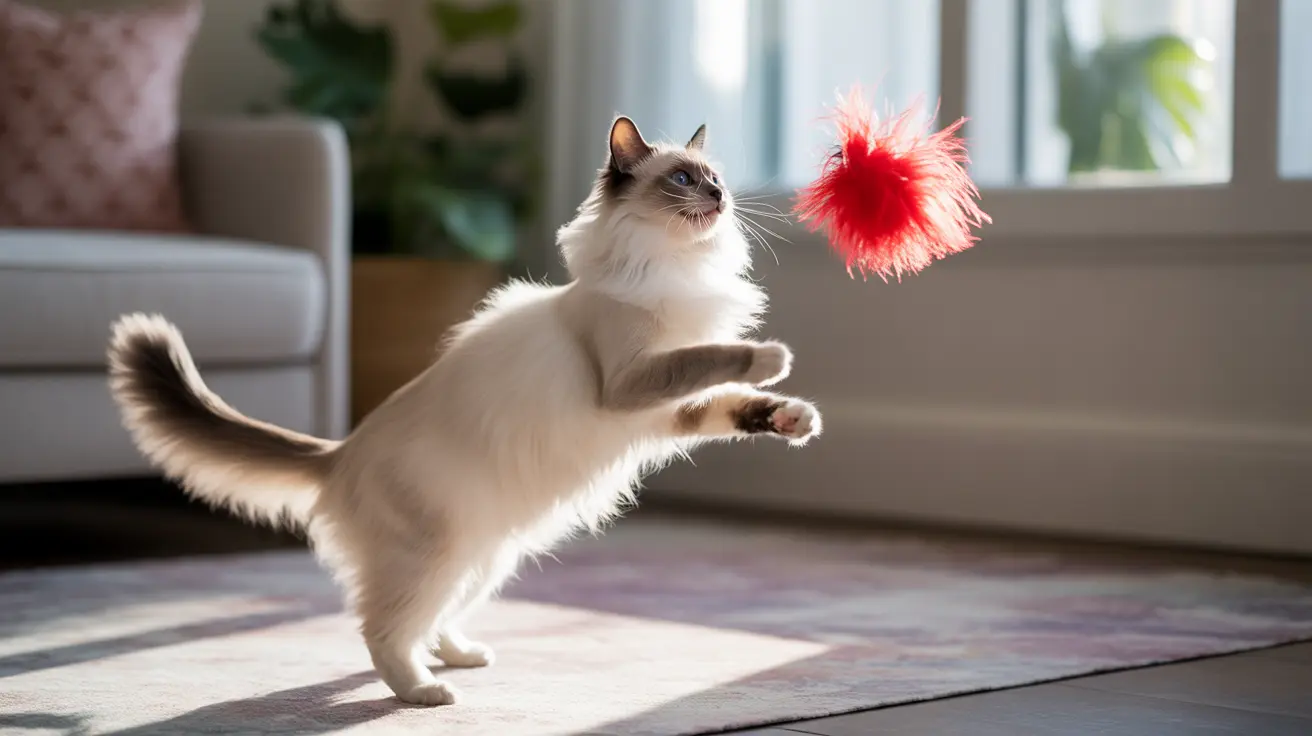When it comes to choosing a feline companion, understanding which cats tend to have longer lifespans and fewer health issues can help you make an informed decision. From robust mixed breeds to resilient purebreds, certain cats are known for their exceptional health and longevity.
In this comprehensive guide, we'll explore the healthiest cat breeds, examining their typical lifespans, genetic advantages, and what makes them particularly resilient. We'll also discuss crucial factors that contribute to feline health and longevity, regardless of breed.
Top Healthiest Cat Breeds for Longevity
1. Balinese
Known for their exceptional health and impressive lifespan of 18-22 years, Balinese cats top our list. These intelligent felines combine the robust genetics of their Siamese ancestors with additional genetic diversity, resulting in fewer hereditary health issues.
2. Russian Blue
Russian Blues are renowned for their sturdy constitution and can live well beyond 15 years. These cats rarely suffer from genetic health conditions and maintain their playful nature well into their senior years.
3. Birman
With a median lifespan of 16.1 years, Birmans demonstrate remarkable longevity. Their gentle nature and generally good health make them excellent companions for families seeking a long-term pet relationship.
Mixed-Breed Advantages
Research consistently shows that mixed-breed cats often outlive their purebred counterparts. With an average lifespan of 14 years, these cats benefit from genetic diversity that helps prevent inherited health conditions.
Recent studies indicate that crossbreed cats in the UK live approximately 1.5 years longer than purebreds, though this gap appears smaller in the United States due to different care practices.
Factors Contributing to Feline Health
Indoor vs. Outdoor Lifestyle
Indoor cats typically enjoy significantly longer lifespans, often reaching 13-17 years or more. This protected environment shields them from common outdoor risks such as accidents, diseases, and conflicts with other animals.
Nutrition and Exercise
Proper diet and regular physical activity play crucial roles in maintaining cat health. Even the healthiest breeds require appropriate nutrition and exercise to reach their full longevity potential.
Preventative Care
Regular veterinary check-ups, vaccinations, and dental care significantly impact a cat's lifespan. Early detection of health issues can add years to your cat's life, regardless of breed.
Special Considerations for Purebred Cats
While certain purebred cats are known for their health, they may still face breed-specific challenges. Working with reputable breeders who conduct genetic testing helps minimize these risks.
Some traditionally healthy breeds like the British Shorthair might still need monitoring for conditions such as hypertrophic cardiomyopathy, making regular veterinary care essential.
Frequently Asked Questions
What are the healthiest cat breeds for longevity and overall health?
The healthiest cat breeds include Balinese, Russian Blue, Birman, and mixed-breed cats. These cats typically have fewer genetic health issues and longer lifespans, often reaching 15-20 years with proper care.
How do mixed-breed cats differ from purebred cats in terms of health and lifespan?
Mixed-breed cats generally have longer lifespans and fewer genetic health issues due to their diverse genetic makeup. Studies show they live approximately 1.5 years longer than purebreds on average.
What factors contribute to a longer lifespan in cats, and how can I implement them?
Key factors include maintaining an indoor lifestyle, providing proper nutrition, ensuring regular exercise, scheduling routine veterinary check-ups, and offering preventative care. These practices can significantly extend your cat's lifespan regardless of breed.
What are some common health concerns in purebred cat breeds, and how can they be managed?
Common concerns include heart conditions, respiratory issues, and genetic disorders. These can be managed through regular veterinary monitoring, genetic testing before breeding, and working with reputable breeders who prioritize health screening.
How can I ensure my cat maintains good health throughout its life, especially in older age?
Maintain regular veterinary check-ups, provide appropriate nutrition, ensure regular exercise, keep vaccinations current, and watch for age-related changes. Senior cats may need more frequent health monitoring and adjusted care routines.






